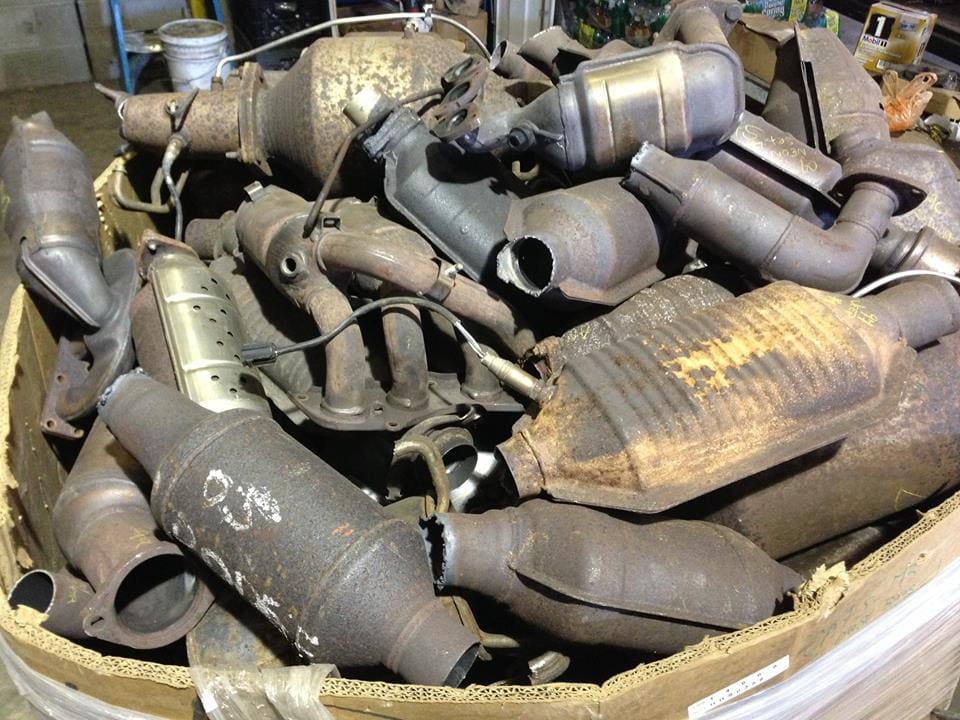A bill that would crack down on the spike in catalytic converter thefts breezed through the House Public Safety & Homeland Security Committee Tuesday afternoon.
House Bill 78, sponsored by Rep. Eric Morrison, D-Glasgow, imposes rules on scrapyards’ purchase or sale of catalytic converters, part of a vehicle’s exhaust pipe.
“Law Enforcement talked about the extreme rise in catalytic converters and I think we all know it’s an issue,” Morrison said. “We see it on Nextdoor, we see it on Facebook, we read about newspapers.”
Delaware is one of the top 10 states with the highest per capita theft rate for catalytic converters, he said.
The reason thieves steal this piece in particular is because it contains three precious metals that are extremely valuable, said Eric De Campos, the director of government affairs at the National Insurance Crime Bureau, to the committee.
RELATED: Catalytic converter theft focus of newly filed bill
Those metals are platinum, palladium and rhodium. An ounce of any of those three can be worth more than $1,000.
“Most catalytic converters cost between $800 and $1,200,” Morrison said, “but that doesn’t necessarily include the costs for fixing the vehicle, and that can run you anywhere between $1,000 to $3,000, so it’s pretty serious stuff.”
If someone steals a catalytic converter and brings it to a junkyard, there aren’t any substantial regulations in place that identify the seller or buyer, nor is there anything that proves the piece isn’t stolen, Morrison said.
Under the bill, anyone who buys a catalytic converter from someone else must collect and record the following information:
- A description of the catalytic converter
- The business license number of the seller
- The name or ID of the employee responsible for making the purchase
- A copy of the seller’s driver’s license or state ID
- A digital photo or video recording of the seller, including a timestamp
- A signed statement from the seller stating that they are the rightful owner of the catalytic converter and that they are authorized to sell the piece
The bill also restricts pawnbrokers, secondhand dealers or scrap metal processors from buying car parts from anyone who is under the age of 18.
If HB 78 is passed, catalytic converters cannot be sold for cash. A buyer must issue a check.
Another requirement will be that all sales must take place between 6 a.m. and 9 p.m., and buyers can only receive the catalytic converter if the deal is done at the address of their business license.
The bill now heads to the House floor.

Raised in Doylestown, Pennsylvania, Jarek earned a B.A. in journalism and a B.A. in political science from Temple University in 2021. After running CNN’s Michael Smerconish’s YouTube channel, Jarek became a reporter for the Bucks County Herald before joining Delaware LIVE News.
Jarek can be reached by email at [email protected] or by phone at (215) 450-9982. Follow him on Twitter @jarekrutz
Share this Post





